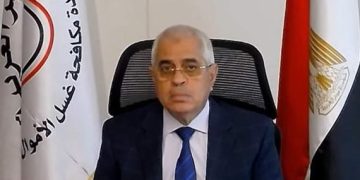The European Union intends to fast-track some of its aid money to Egypt using an urgent funding procedure that bypasses parliamentary oversight and other safeguards, according to the president of the bloc’s executive branch.
The 1 billion euros ($1.1 billion) intended for this is part of a larger package of 7.4 billion euros ($8 billion) in financial assistance to the North African country that the EU announced on March 17.
The EU package includes three year’s worth of grants and favorable loans for the Arab world’s most populous country. Most of the funds — 5 billion euros ($5.4 billion) — are known as macro-financial assistance, or MFA, and would be paid directly to Egypt’s Central Bank.
It’s rare for the EU to sidestep safeguards, but European Parliament elections are due June 6-9 — a timeline that if the checks were implemented, would slow the delivery of that money.
With those polls in mind, European Commission President Ursula von der Leyen announced plans for “an urgent MFA operation for up to 1 billion euros” for Egypt, noting in a letter to EU Parliament President Roberta Metsola the country’s “rapidly deteriorating economic and fiscal situation.”
The letter, seen by The Associated Press, preceded the announcement of the deal with Egypt.
Von der Leyen blamed “a very large exposure to the economic effects of Russia ’s full-scale war of aggression on Ukraine, the wars in Gaza and Sudan, and the Houthi attacks in the Red Sea,” and said it was “imperative to make sure that a first significant contribution” would get to Egypt by the end of 2024.
To do so, the commission would employ a seldom-used part of the EU treaties, Article 213, which stipulates that the 27 member countries must endorse the funds — but not the parliament, the bloc’s only democratically elected institution.
Apart from removing the need for parliamentary oversight, the urgent funding procedure also side-steps a requirement for an impact assessment on the effects of the assistance.
Von der Leyen said the new parliament that will be formed after the EU elections would be “fully involved” for the remaining 4 billion euros ($4.3 billion) of MFAs to Egypt, to be disbursed when Cairo agrees to implement “more comprehensive” reforms.
The deal also includes a 1.8 billion euro ($1.9 billion) investment plan and 600 million euros ($647 million) in loans, including at least 200 million euros ($217 million) that will go to Egypt for “migration management.”
The fast-track money would inject much-needed funds into the Egyptian economy, which has been hit hard by years of government austerity, the coronavirus pandemic, the fallout from the Russia-Ukraine war, and most recently, the Israel-Hamas war in Gaza.

















































Discussion about this post